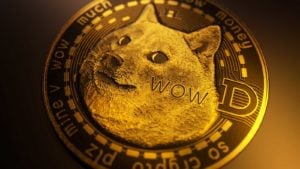Cryptocurrency has certainly been one of the most important economic themes of 2021. A decade from now we’ll look back on this year as a seminal moment in the evolution of cryptocurrency, defi, blockchain, and other economic related phenomena. Unfortunately, we’ll also think for a second about scam coins.
It’s still very early in the game. And any time a new topic, or in this case, asset class, catches fire, scammers pop up. That is to be expected and we’ve seen no shortage of cases.
Just as pump-and-dump schemes plague the stock market, so too do similar rug pull scams in the crypto world.
The maxim of limiting your investment to what you can safely lose is likely a decent rule of thumb when playing in the more speculative depths of the crypto world. Investors can and do lose every bit of capital in crypto in the worst of cases.
The Squid Game $SQUID coin fiasco proved that to be true recently. Investors lost everything. As sad as that is, essentially there are a few red flags to look out for. Those include demanding crypto only payments, vague details, promises to multiply your capital, and as Squid Game showed, even poor grammar and bizarrely worded white papers.
I like the rule of thumb that if it evokes strong FOMO, it’s probably worth avoiding.
- Dogecoin (CCC:DOGE-USD)
- Shiba Inu (CCC:SHIB-USD)
- Dogelon Mars (CCC:ELON-USD)
- Shiryo-Inu (CCC:SHIRYO-INU-USD)
- Squid Inu (CCC:SQUID-USD)
- Cheems Inu (CCC:CINU-USD)
- Turkey Inu (CCC:TURKEY-USD)
Scam Coins to Avoid: Dogecoin (DOGE)

It’s old news that Dogecoin was created as a joke. When creators Billy Markus and Jackson Palmer forked it from Litecoin (CCC:LTC-USD) in late 2013, it was done with lighthearted intent more so than as a scam. They based it off of a popular dog meme featuring a Shiba Inu breed. Elon Musk tweeted about it, and it gained a level of notoriety that its creators likely never envisioned.
I don’t believe its creators had any malevolent intent. Nor do I believe Dogecoin is being used in a malevolent way. However, there isn’t much behind it.
That’s a problem because as Squid Game coin showed, scammers will use trending topics to take advantage of the boom in social phenomena. They marry that with sophisticated crypto know-how. The result is very trendy projects that induce fear of missing out while appearing legitimate.
In the case of the Squid Game coin, the results were disastrous.
Again, I’m not saying that Dogecoin is undergirded by nefarious actors like Squid Game coin was. Rather, I’m trying to make the point that Dogecoin is in many ways a forerunner to some of the shadier aspects of crypto: Too much fun and silliness, but very little in the way of substance. I think that’s what Billy Markus wanted people to know when he repeatedly noted that it was a joke when it first caught on.
Shiba Inu (SHIB)

A recent headline wondered aloud, “1 million Shiba Inu users can’t be wrong…can they?” The headline was written in response to the fact that Shiba Inu recently surpassed the million holder milestone.
That article didn’t go on to explain whether holders are or aren’t wrong, instead only noting that SHIB reached the milestone during a price downturn.
But the point I wanted to make is that Shiba Inu, like Dogecoin, is a bit of fun that has gotten out of hand. All signs point to the idea that those one million Shiba Inu holders could very well be wrong.
Shiba Inu was created in 2020 by an anonymous entity called Ryoshi. It is intended to displace Dogecoin, which explains the naming convention for the project.
But there isn’t much behind the project yet. Yes, SHIB itself is powered by the Ethereum (CCC:ETH-USD) network. That lends it some credibility in some sense. But SHIB itself is almost unfathomably cheap. As I write this it trades at $0.00004703. That is what happens when you issue 1 quadrillion of something meant to represent value and lacks use.
Until something changes, you can only view Shiba Inu as a joke as well. In that sense it is then a scam. That doesn’t mean traders can’t make money, just that there’s nothing underpinning SHIB.
Scam Coins to Avoid: Dogelon Mars (ELON)

What do you expect from a project whose name is a portmanteau of Dogecoin and Elon Musk? I’d say it’s surprising, but if you follow cryptocurrency it shouldn’t be. There are far too many scam coins that seem to have been conceived as some sort of amalgamation of trending topics and poorly developed childish ideas. Dogelon Mars is one of them.
The name Dogelon Mars is the amalgamation of trending topics in crypto. That’s clear. But it’s the poorly developed explanation of the project itself which should truly raise your eyebrows.
If you take the narrative pulled directly from the project’s website, this is one of the weirder crypto projects going.
Dogelon Mars has been chased through time from sometime after the year 2420 and has found refuge on Earth. His mission: Establish an intergalactic currency that can be used by all people and civilizations that can integrate with the space age technology of the coming era.
We are then entreated to join young Dogelon Mars in reaching the stars. You can’t make this stuff up. Well, you can, but don’t expect anyone to take you seriously when you do.
Shiryo-Inu (Shiryo-Inu)

Shiryo-Inu is another cheap altcoin with an incredibly inexpensive price of $0.00000000005618. That means for $1 you can currently control 13.698 billion Shiryo-Inu coins.
The allure here is that it catches the attention of the masses by some stroke of luck and a couple of those zeroes drop off of its price. And voila! Like Shiba Inu earlier in the year, it mints millionaires overnight.
To the credit of the team behind Shiryo-Inu, they have at least attempted to create something believable.
Shiryo-Inu is an NFT trading card game. Participants will receive random packs of 5 trading cards based off of the Ethereum ERC-20 standard for issuing smart contracts. Other than the NFT aspect of the project, this looks like any other card game within the genre. Cards have varying attributes that dictate the outcomes of turn-based battle that defines gameplay.
I guess the idea is to make users feel like they’ve hit on something that combines cult classics like Pokemon with NFT elements. Be among the early adopters and you’ll be sitting on Easy Street in due time, right? But that is far from what exists based on the site currently.
Scam Coins to Avoid: Squid Inu (SQUID)

If I were going to try and scam a bunch of people utilizing crypto, I think I might start with naming. I’d give it a name that includes some sort of homage to the Shiba Inu dog breed. And then I’d combine it with some other pop culture phenomenon in order to ensure it had all the right SEO elements to gain traction… I think you can see where I’m going with this.
Remember how a lot of people noted that the Squid Game Coin website contained strange grammatical construction and flat out unintelligible sentences? In hindsight that was noted as a major red flag that should have sent users rushing to the exits.
Well, Squid Inu contains that as well. This excerpt, lifted directly from its ‘about’ page is a nightmare to try and untangle: “Our DAO will grow on every transaction community will make proposals and vote on decisions. Squid Inu DAO will make investments to grow the DAO and giveaways to the community. We will buy a Sports Teams, Blue Chips NFTs , Digital Land and Donate to Charity’s.”
Good luck on buying ‘a sports teams.’ The former Seattle Supersonics/current Oklahoma City Thunder is technically ‘a sports teams,’ perhaps they’re willing to be acquired. Jokes aside, this has some scam red flags written all over it.
Cheems Inu (CINU)

Cheems Inu seems to be trying to tap into FOMO. Its welcome page markets it as, “Combining Memes & Crypto to bring both LOLs and money to the masses of the internet. Get some Cheems Inu today!”
On top of that, its price chart is listed through poocoin.app, which is kind of funny, I guess. I LOL’d, I’ll admit it. But it doesn’t inspire much belief in its legitimacy. And like everyone else, I wouldn’t laugh if someone scammed me out of money. This seems to be one of those goofy crypto projects that aren’t necessarily malevolent on the level of the Squid Game Coin, but it will cost you money in the long run.
I downloaded the Cheems Inu White Paper in order to understand what the economics of the token are. After waiting for about a minute for the PDF to load I found that there isn’t really anything fleshed out. It lists some connections. Basically, you can go to its website to find out nothing. Otherwise, you can connect with them on Twitter (NYSE:TWTR) and Telegram, which will likely be more of the same.
The only interesting thing I found out was that I cannot become a Cheems Inu whale even if I want to. That’s because they limit individual holders to controlling 3% of the supply or less.
Scam Coins to Avoid: Turkey Inu (TURKEY)
I’m writing this article on the day after Thanksgiving. Unfortunately, Turkey Inu has suffered a 70% decrease in price following what should have been its finest hour. It was to be “the next great meme token that reminds us to be grateful to each other every day of the year while also earning you big bucks.”
Perhaps my sarcasm isn’t coming through in the words written on the page, but I hope it is. There isn’t much to say here about the project. Turkey Inu’s roadmap consists of a series of promises to do things that other cryptos don’t. That isn’t convincing in the least. Juxtapose that with the roadmap of a legitimate crypto project like Cardano (CCC:ADA-USD) and the difference is clear.
The project is targeting a market cap of $100 million by Q2 ‘22. Something tells me that isn’t going to materialize.
InvestorPlace does not regularly publish commentary about cryptocurrencies that have a market capitalization less than $100 million or trade with volume less than $100,000 each day. That’s because these “penny cryptos” are frequently the playground for scam artists and market manipulators. When we do publish commentary on a low-volume crypto that may be affected by our commentary, we ask that InvestorPlace.com’s writers disclose this fact and warn readers of the risks.
Read More: How to Avoid Popular Cryptocurrency Scams
On the date of publication, Alex Sirois did not have (either directly or indirectly) any positions in the securities mentioned in this article. The opinions expressed in this article are those of the writer, subject to the InvestorPlace.com Publishing Guidelines.
Alex Sirois is a freelance contributor to InvestorPlace whose personal stock investing style is focused on long-term, buy-and-hold, wealth-building stock picks. Having worked in several industries from e-commerce to translation to education and utilizing his MBA from George Washington University, he brings a diverse set of skills through which he filters his writing.
The post 7 Biggest Scam Coins to Avoid as We Head Into Year-End appeared first on Light Feed.
Source: Light Feed
Source: Viva Pilipinas
.png)
No comments:
Post a Comment